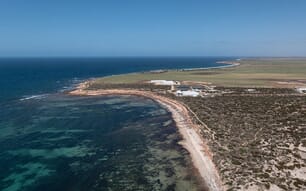Canadian Prime Minister Stephen Harper commented: “This trade agreement is an historic win for Canada. It represents thousands of new jobs for Canadians, and a half-billion new customers for Canadian businesses.”
The Agreement will provide Canada with preferential market access to the European Union with the fish/seafood and agriculture/agri-food sectors standing to benefit significantly.
The deal will eliminate around 98 per cent of EU tariff lines meaning that lobster fishermen in the Maritimes, arctic char farmers in the Yukon and grain producers in the prairies, among others, will see their bottom lines improve.
The agreement is also good news for the UK. The UK's economy and businesses will be boosted by over £1.3 billion a year.
The Minister of State at the Foreign and Commonwealth Office, Hugh Robertson, said that the deal will especially benefit British dairy and poultry farmers.
UK Prime Minister David Cameron welcomed the deal stating: "The EU has delivered its largest free trade agreement ever and proved that it can be an asset for British business. The deal will inject £1.3 billion into the UK economy, boost exports by almost a third and create thousands of new jobs."
Looking towards future agreements, Mr Cameron commented: "I’ve made it a priority to push for a US-EU trade deal. We must now seize on today’s success and focus our efforts on concluding all the other trade deals on the table. Concluding those would be worth over £20 billion to the UK and help British businesses thrive in the global race."
Now that an agreement in principle has been reached, both parties will seek to conclude the formal agreement and undertake a legal review of the document. Once the final agreement is signed, it will then need to be ratified by respective parliaments.



